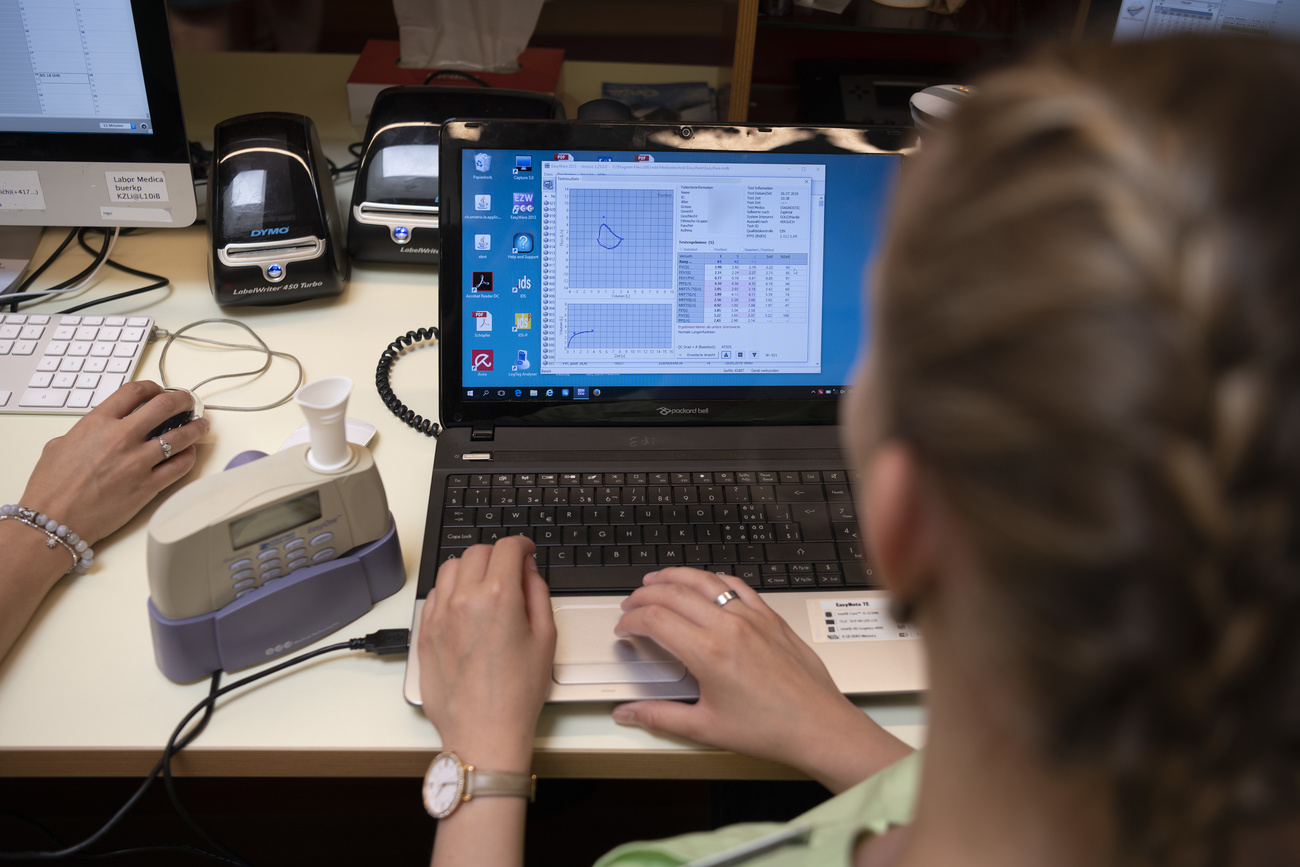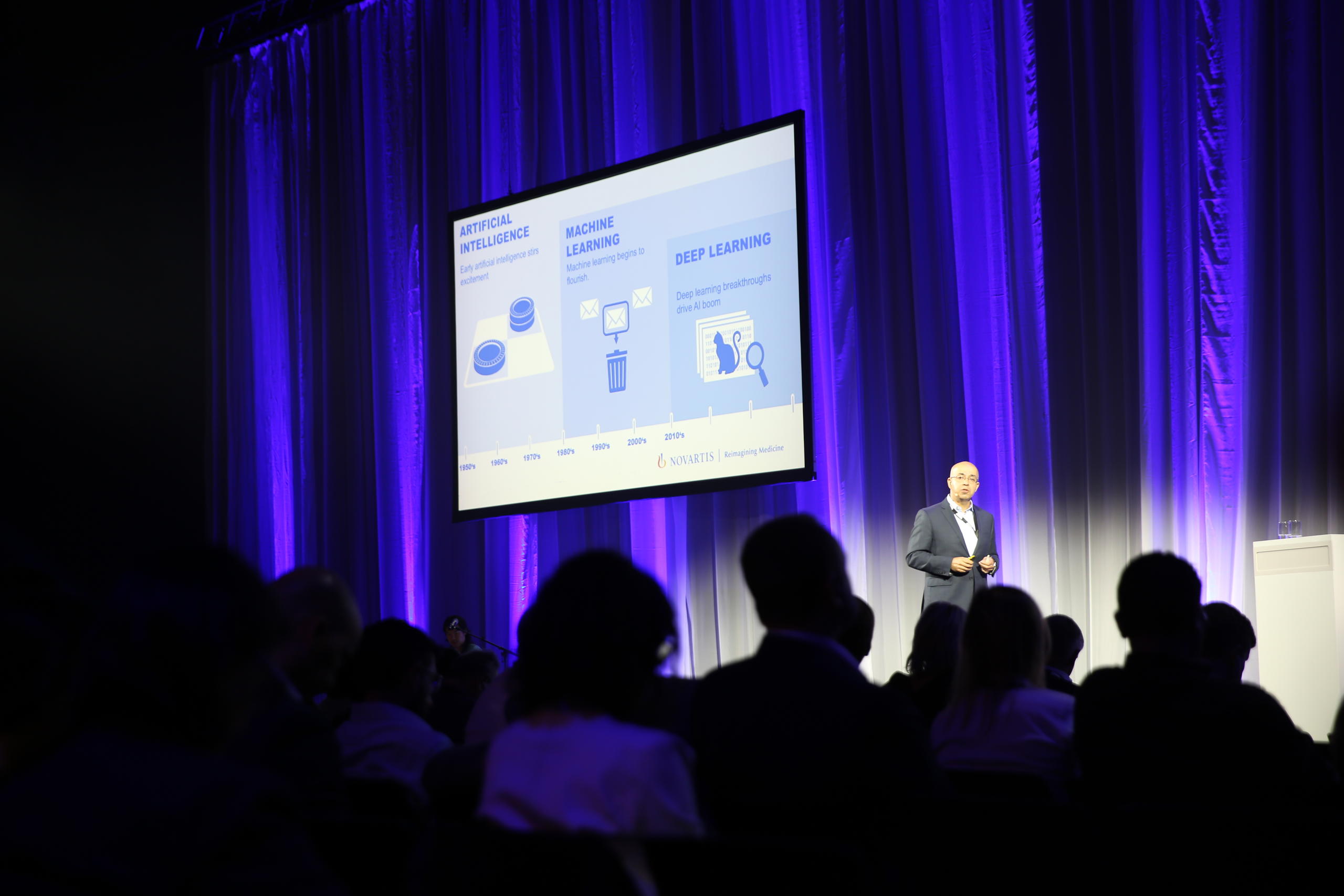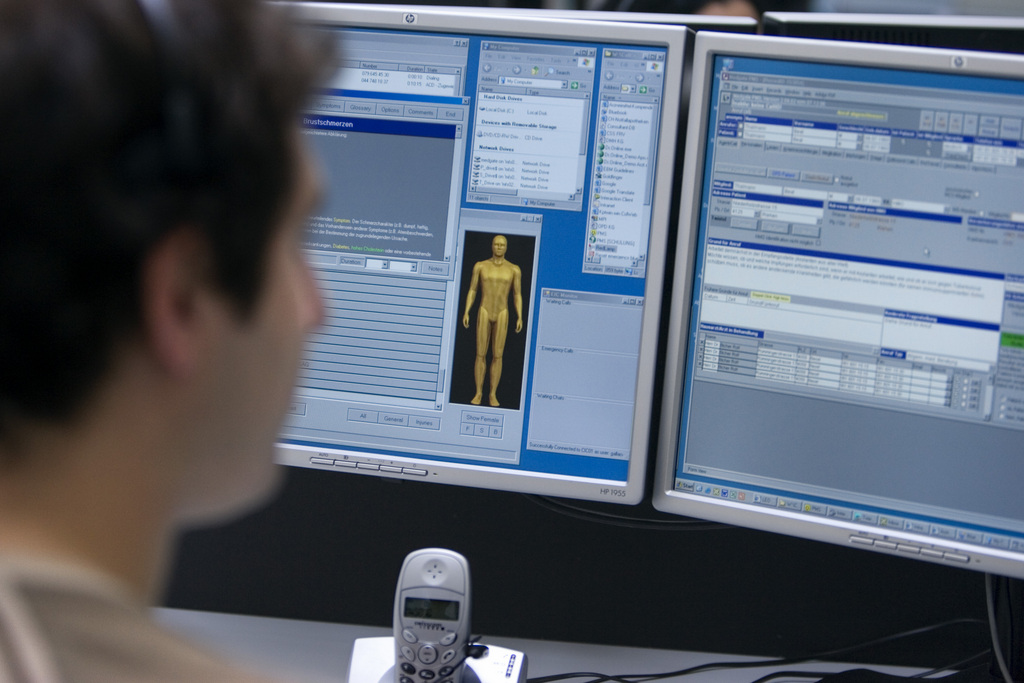Digitising clinical data: an uphill road for Switzerland

"Have you ever tried to ask your doctor for your electronic medical record? Try it if you want to have fun." Bioinformatician Torsten Schwede thinks that Switzerland is still quite far from the goal of creating a single digital clinical data exchange system that would enable the country to transition to a more modern healthcare system.
“In some cases, clinical data are on paper, in others they are digital. Often physicians still communicate with each other via fax. So there is still no such thing as ‘your electronic medical record’ where all information flows together in a structured way,” the professor says. Torsten Schwede is vice president for research at the University of Basel and head of a research group at the SIB Swiss Bioinformatics Institute. He explains that health data is often stored in different silos that are not accessible and in formats that are not intelligible by software tools.
For example, Switzerland struggled to keep track of the infections at the beginning of the pandemic, because cantons manually flagged new cases and faxed them to the federal authorities, instead of doing that digitally.
Schwede says interoperable digital health records are needed to support innovative research and use advanced technologies like artificial intelligence (AI) in the medical field. A more personalised healthcare system would consider, for instance, the patient’s individual genetic predisposition and offer appropriate diagnostics and care.
In the context of a pandemic, if more data was available, AI could be used to better understand which patients were at risk of severe complications or to optimise vaccination campaigns. But clinical data in Switzerland is currently scarce.
Torsten Schwede and others at the forefront of healthcare innovation believe that small but rich and innovative Switzerland, is not taking full advantage of its resources and the opportunities offered by new technologies to meet the challenges of the 21st century, such as another pandemic.
Healthcare of the future
AI has demonstrated that it can surpass human capabilities in biotechnology and imaging. The idea of non-human intelligence getting the better of humans may seem scary, but the truth is that physicians and scientists increasingly see it as a valuable ally in their daily work.
“AI is really emerging globally as a new tool that can decisively support disease diagnostics and screening,” says Raphael Sznitman, director of the ARTORG Center for Research in Biomedical Engineering and head of the new Center for Artificial Intelligence in Medicine at the University of Bern. Sznitman illustrates how, in the context of the Covid-19 pandemic, modern artificial intelligence has made extensive use of available clinical data in medical imaging, especially for diagnostic purposes, demonstrating that it can distinguish pathology caused by the coronavirus from traditional diseases with an accuracy of more than 90%. This significantly outperforms the natural capabilities of a group of radiology experts..
To achieve these results, a team of researchers at Bern’s University Hospital and the ARTORG Center trained their new chest radiography image system on 7988 cases, of which 258 had Covid-19 and 5451 other forms of pneumonia. Then, they compared the diagnostics capability of AI with that of radiologists with various levels of expertise. It was demonstrated that AI was significantly more reliable in distinguishing Covid-19 from non Covid-19 lung disease.
In the future, more and more reliable and quality patient data from around the world will be needed to use AI in other fields of medicine and teach it to recognise as many cases and patterns as possible. For instance, Sznitman sees triage as an area where smart technologies could have a major impact. But without the data, AI cannot unlock its potential. “That’s why integrating digital information into a single system is essential,” he argued.
Where there is a will, there is a way
One of the biggest challenges for future health science is to have patients’ health information accessible — subject to consent and strict privacy protection measures — for research purposes in a format that is not only digital but also interoperable in Switzerland and around the world. Of course, this requires a global commitment, but although Switzerland excels in researching the potential applications of AI in medicine, it still has a lot of work to do at this juncture, experts say.
The Swiss healthcare system relies on a federalist structure, where the federal government, cantons and local municipalities have different competencies. At the same time, health services are not provided by the state but by private health insurance.
The fragmented nature of this system makes it complicated to exchange information even between doctors and hospitals within the same canton. Behind this, Schwede sees above all a lack of will among decision makers. “Without a political move to make the use of interoperability standards mandatory, the challenge of making health data accessible for research remains stranded in purely technical limitations.”

Towards personalised healthcare
There are however moves afoot at the federal level. 2017 saw the birth of the Swiss Personalized Health Network SPHN, an initiative of the federal government that aims to create interconnected data infrastructures to make relevant health information interoperable in Switzerland. Its mandate is carried out by the Swiss Academy of Medical Science in collaboration with the Swiss Bioinformatics Institute.
Urs Frey, director of the University Children’s Hospital Basel and chairman of the national steering committee of the SPHN, believes in the importance of basing research and clinical decision-making on health data from the real world in order to move towards a model of personalized medicine that increasingly takes into account individual characteristics. The SPHN’s work aims to do just that, but achieving the goal requires overcoming significant technical challenges that require the collaboration of all stakeholder groups in healthcare.
“The goal of the SPHN is to harmonize data, both from the point of view of creating the same terminology standard for everyone and how information is exchanged between different facilities and healthcare providers,” Frey explains. To do so, SPHN brings together the various players in a multi-stakeholder approach that allows for harmonisation of content and meaning – so-called “semantic interoperability” – and the secure and ethical exchange of data nationwide, while respecting patient privacy. Currently, the project has focused on university hospitals, but the goal over the next three years is to support interoperability in cantonal facilities as well.
A Swiss problem?
With an excellent scientific landscape and a well-functioning healthcare system, Switzerland could well be positioned at the forefront of the digitisation of healthcare, not least because of the high quality of its data compared to those coming from other countries. Despite these premises, harmonisation of clinical data is not yet a reality. Frey thinks the Swiss federalist system makes this process particularly challenging, although the problem is not just Swiss.
According to Sang-il Kim, head of the Digital Transformation Division at the Federal Office of Public Health (FOPH), the issue is much more complex. The main problem is that hospitals and medical centres in Switzerland are private organisations that won’t invest money without an incentive. “Better digitization does not translate into a return on investment. And every hospital in Switzerland is an entrepreneur,” says Sang-il Kim. To give a concrete example, Kim explains that Switzerland is part of Snomed CT, an international organisation that has developed a global language standard in healthcare that could be used to make semantic data interoperability effective.
“The reality, however, is that no-one in Switzerland is taking advantage of this system because there is a lack of a market and therefore also no incentive to invest,” he says. For Kim, it’s difficult for incentive to come from parliament, since it considers such investments should be the responsibility of medical facilities.
This back and forth could cost citizens dearly in future. The Covid-19 pandemic has shown that countries with a modern digital healthcare system and public health infrastructure, such as Israel – which is similar in population size to Switzerland – are carrying out the vaccination campaign more efficiently.
In the coming months, AI could be crucial for quickly analysing the status of Switzerland’s Covid-19 vaccination campaign. But as long as clinical data remains stored in unreachable silos and unintelligible formats, or worse on paper, no intelligence, either human or artificial, will be able to analyse it to produce results and scientific progress.
“I see potential progress in digitising health data but also its limitations. The road is long, it will take a few years. But I still have hope,” Kim concludes. Will we be ready, then, for the next pandemic?

In compliance with the JTI standards
More: SWI swissinfo.ch certified by the Journalism Trust Initiative













You can find an overview of ongoing debates with our journalists here . Please join us!
If you want to start a conversation about a topic raised in this article or want to report factual errors, email us at english@swissinfo.ch.